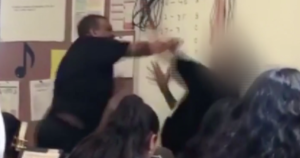International Students Reflect on Christmas Traditions
December 19, 2019
International students make up 5.5 percent of the total U.S. higher education population according to the 2019 Open Doors Report on International Educational Exchange. For many, Christmas will be one of the first holidays spent away from loved ones.
“In Berlin, we celebrate St. Nicholas’ Day on December 6. It’s like a small Christmas with friends and family. The evening before December 6, you clean your shoes, put them outside [of] your door, and after you go to sleep parents put small gifts and candy in them,” junior Carlo Puca said.
St. Nicholas is celebrated in Europe and originates from present-day Turkey. St. Nick is known for his secret gift-giving, such as putting coins in the shoes of those who left them out for him, which became the model for Santa Claus. It is also where the idea of Christmas stockings originated.
“Before Christmas in Czech, [my family and I] bake special Christmas candies, decorate our Christmas tree and go to Christmas markets and buy their hot chocolate and hot wine,” senior Judita Jelinkova said.
Dresdner Striezelmarkt is Germany’s oldest Christmas Market, dating back to 1434. It is located on one of Dresden’s most popular shopping streets, between the city and main railway station.
“Oh my gosh, it’s the best part! You can buy candy there and play all sorts of games. It’s like a carnival. But, the candy is so good. It’s more for kids and younger people, but even I enjoy it. It’s so much fun,” Puca said.
In Czech, normal holiday meals vary from family to family.
“After Christmas eve, we go to my grandparents and have our traditional duck with dumplings and cabbage,” Jelinkova said.
In Spain, the traditional Christmas dinner is stuffed turkey with truffles or lobster.
“In Madrid, we have really good seafood on Christmas,” sophomore Gonzalo Crooke said.
The decorations in other countries are different as well.
“In Berlin, we mainly had apartments. You can’t have all those lights, because [the building] doesn’t belong to you. So, we decorated our windows with colored paper. It’s crazy what you guys do with all the lights and decorations,” Puca said.
After Puca saw photos of what Christmas looked like around America, he was shocked.
“Decorating in Spain is definitely not as big as [it is] here. It’s crazy,” sophomore Gonzalo Crooke said.
As others experienced what is viewed as their traditional Christmas holidays, a sophomore from Nigeria, Danielle Ojo, said she is most excited about presents, Christmas parades, and experiencing her first Christmas spent with her new family. She reflected on how in Africa, the holidays are not as celebrated.
“[There are] different tribes and some don’t [even] celebrate Christmas. No one celebrates Thanksgiving either. We don’t even really know what that is,” Ojo said.
After only spending a few months in America, Puca has traveled to different parts of America, tried new foods, and has learned many things about American culture.
“The bread in Germany, it’s amazing. I really miss my bread,” Puca said.
Puca said he is incredibly grateful for his experiences while living in America.
“I love it here. I think the exchange of cultures is really cool, and also giving my host parents candy and showing them stuff that I do during holidays will allow all of us to learn new things,” Puca said.


